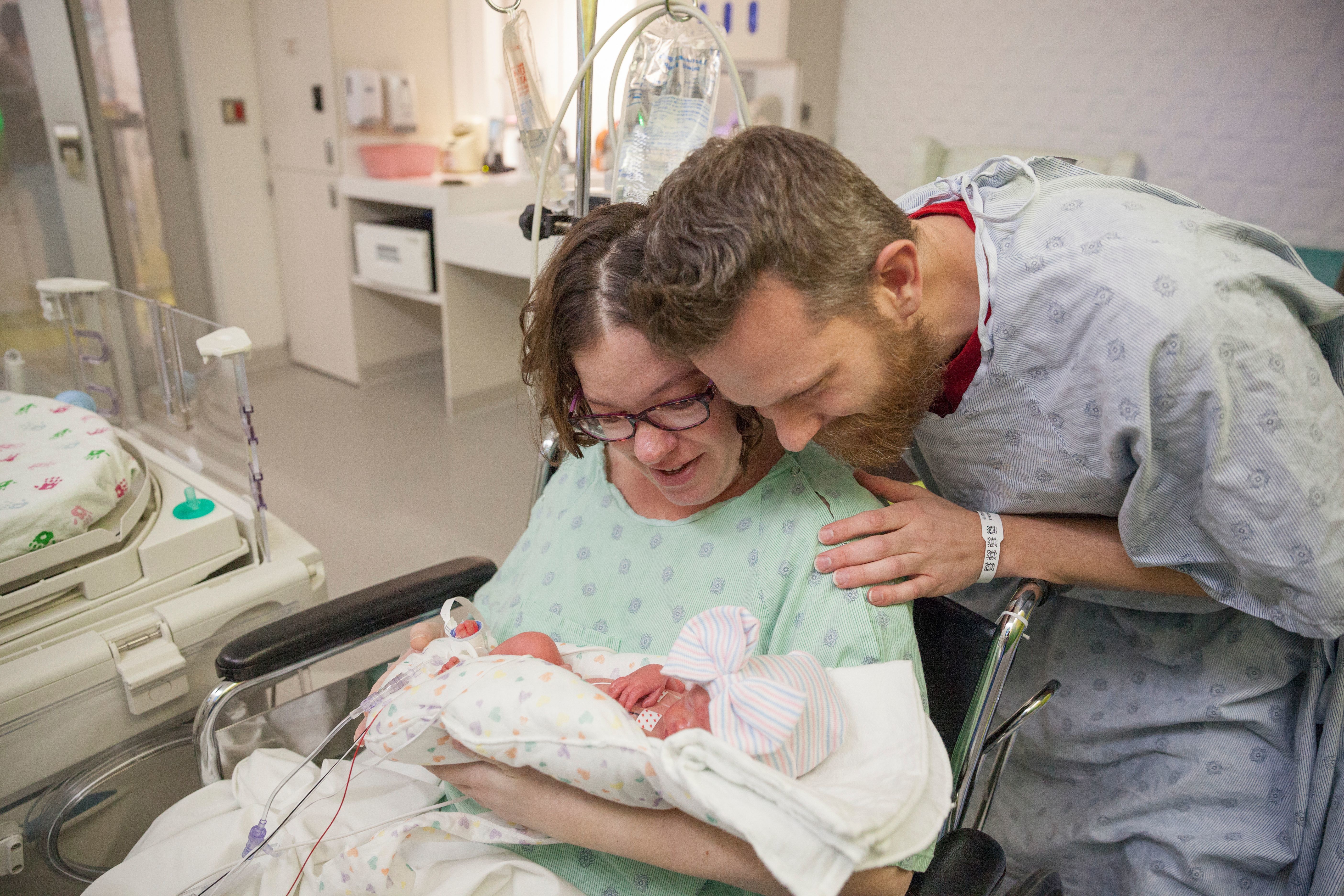Maternal Mental Health Conditions are Common and Treatable
What is maternal mental health?
The mental health of pregnant and postpartum people up to 12 months after delivery.
Why is maternal mental health important?
Depression and anxiety represent the most common complications of pregnancy.(1) Supporting and prioritizing the mental health of pregnant and postpartum people is vital to the well-being of women, children and families in Colorado. People experiencing perinatal mood and anxiety disorders have a higher risk of suicide, cesarean deliveries, and work absenteeism and presenteeism (i.e., they may be less productive or more likely to make mistakes at work).(2) Left untreated, depression can impair parent-infant bonding and limit a child’s emotional development and ability to learn.(3)
What is the data showing in Colorado?
Nearly 30% of Colorado moms in the first 4 months postpartum reported symptoms indicative of a possible anxiety disorder in 2018.(4) 11% of Coloradans reported symptoms of postpartum depression after their new baby was born.(5)
Research indicates this may underestimate the true prevalence in Colorado in large part because the survey is based off of self-report as opposed to a clinical diagnosis, and after giving birth, people may find it hard to be open about their symptoms.
Untreated depression and anxiety are major contributors to maternal mortality. Approximately one-third (29.8%) of maternal deaths occurring in Colorado between 2004 and 2013 were attributed to mental health conditions, including depression/suicide, suicide, recreational drug abuse, prescription drug abuse and other psychiatric conditions not otherwise specified.(6)
Untreated perinatal mood and anxiety disorders carried a 5-year societal cost of $199 million in Colorado following just 2017 births.(7)
Who is affected?
Pregnant and postpartum people are most frequently affected but it can also affect fathers, partners, adoptive parents and close family members. All pregnant and postpartum people in Colorado, irrespective of age, race, and income, are at risk of depression and anxiety; however, those who are younger and have a lower income report even higher rates of postpartum depressive symptoms than their older, higher-income counterparts.
What are the risk factors?
Maternal mental health complications such as depression and anxiety are caused by a combination of biological, psychosocial, and environmental factors. Strong predictors of postpartum depressive symptoms include a personal or family history of mood or anxiety disorders, sensitivity to hormonal changes, life stress, and poor social support.(9) Pregnancy and birth complications and infant health issues are also associated with depression and anxiety.
Is it treatable?
Depression and anxiety among pregnant and postpartum people is highly treatable. Treatment plans are different for each person but might include increased self-care, social support, therapy or counseling, and treatment of symptoms with medication when necessary. Regular screening and education can increase awareness and identification of depression and anxiety and increase the number of pregnant and postpartum people receiving treatment.
Data Resources
Health eMoms Survey Data | Department of Public Health and Environment
The Colorado Department of Public Health and Environment’s Health eMoms program is an online, longitudinal data collection system that draws a monthly sample of postpartum people from live birth certificates and recruits participants by mail to join an online survey platform. Enrolled participants receive a total of six online surveys by email and text message from shortly after they give birth up until their child’s third birthday. These data help us understand the needs and experiences of postpartum people in order to develop and improve programs and policies that address these needs. At publication of this Toolkit in Fall 2021, data are available from the first four surveys (-24 months postpartum) for the 2018 birth cohort and the first two surveys (-12 months postpartum) for the 2019 birth cohort.
Postpartum Behavioral Health Report: February 2021 & Health eMoms Areas of Wellbeing, Behavioral Health: September 2022
These reports use Health eMoms and the Pregnancy Risk Assessment Monitoring System (PRAMS) data to describe postpartum behavioral health and access to services in Colorado.
Pregnancy Risk Assessment Monitoring System
The Pregnancy Risk Assessment Monitoring System (PRAMS) is a surveillance system designed to identify and monitor behaviors and experiences of women before, during and after pregnancy. Information is collected by surveying a sample of women who have recently given birth. The link above is specific to Colorado data gathered through PRAMS.
References
- Wisner et al. (2013). Onset Timing,Thoughts of Self-harm, and Diagnoses in Postpartum Women With Screen-Positive Depression Findings, JAMA Psychiatry,70, p 490-498.
- Luca et al., Societal Costs of Untreated Perinatal Mood and Anxiety Disorders in the United States (2019)
- National Research Council and Institute of Medicine. (2009). Depression in Parents, Parents, and Children: Opportunities to Improve Identification, Treatment, and Prevention. The National Academies Press, p 213.
- Colorado Health eMoms Survey 2018.
- Pregnancy Risk Assessment Monitoring System (PRAMS) 2017/18.
- Maternal Deaths in Colorado: An Analysis of Mortality from 2008-2013, Colorado Department of Public Health and Environment, 2017.
- Luca et al., Societal Costs of Untreated Perinatal Mood and Anxiety Disorders in the United States (2019)
- O’Hara, M. W., & Wisner, K. L. (2014). Perinatal mental illness: definition, description and aetiology. Best Practices & Research Clinical Obstetrics and Gynaecology, 28, 3-12.
- O’Hara, M. W., & McCabe, J. E. (2013). Postpartum depression: current status and future directions. Annual Review of Clinical Psychology, 9, 379-407.

